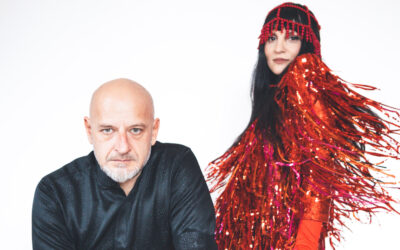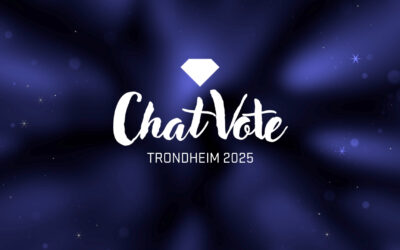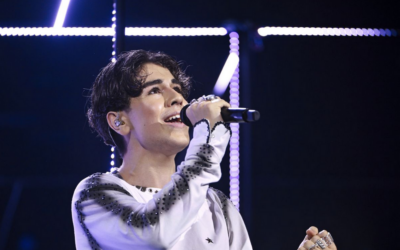
New format, same old story? Reviewing the 2019 UK contenders

New format, same old story? Reviewing the 2019 UK contenders
It’s been a funny few years for the United Kingdom at the Eurovision Song Contest. On the surface, the three entries since the BBC reintroduced its national final in 2016 have been broadly unsuccessful, with the 24th places recorded by Joe & Jake and SuRie punctuated only by the brief flurry of excitement when Lucie Jones’s “Never Give Up On You” looked like it might be heading for the left-hand side of the scoreboard, only for its bubble to be burst by an underwhelming televote score.
Despite this, the mood around the contest in the UK feels more positive than I can remember it being in a long time. “We” may not do especially well – and there will always be people saying we should withdraw because “they” all hate us anyway – but the BBC Eurovision team has done a pretty good job of reframing ESC as a week-long celebration and a social media event, where it doesn’t really matter if the Union Flag ends up occupying its usual position at the bottom right-hand corner of the screen once the voting comes along. That’s an important step in the post-Wogan era and one that deserves to be applauded.
Taking the easy road?
With viewing figures solid no matter who represents the UK, of course, a cynic might say that gives the BBC a good excuse not to try especially hard when it comes to selecting its entry. Certainly, the recent British national finals can be accused of harbouring a fairly safe bunch of songs, largely sourced from collaborative writing camps at home and abroad (with the occasional Dulcima slipping through the net). There have been positive innovations too, though: Getting Måns Zelmerlöw on board as a host, moving the show around the country a bit – last year Brighton, this year Salford – and, perhaps most notably of all, the new format the BBC has introduced for the 2019 edition, which will see three songs each being performed in two musically different styles by two different artists.
Yesterday, those songs and interpretations were revealed to the public for the first time. Inevitably, then, the big question is: Can any of them change the UK’s fortunes on the international stage? Let’s take a closer look at their chances.
Bigger Than Us
With a decidedly Swedish look to the songwriting team, it’s no surprise that “Bigger Than Us” feels a little been-there-done-that, not least since the rather po-faced Michael Rice interpretation also ends up strongly reminiscent of a recent Australian entry. That said, even with its desperately clunky key change, it’s clearly the better of the two versions – the “pop-country” beat that’s been lazily laid on top of Holly Tandy’s take adds very little and gives the entry a monotonous feel. Mind you, we said something similar about SuRie’s “Storm” last year only for her to perform the arse off it and take a deserved victory at the national final stage, and it’s possible that X Factor alumnus Tandy will have something similar up her sleeve.
Freaks
An immediate headdesk moment here thanks to that “locker/soccer” rhyme in the first two lines (and can we really accept the prospect of a British entry that calls football “soccer”?), but once “Freaks” gets going, you can kind of see what they’re trying to achieve with it. While cheesy to the extreme, both versions have a Greatest Showman air about them – Jordan Clarke’s goofy circus ringmaster vs. MAID’s creepy house of horrors – and if the UK final has any kind of budget for staging, there’s potential for some interesting visuals here. The tone remains decidedly safe and middle-of-the-road, of course – we’re talking mid-2000s Melodifestivalen rather than the Dresden Dolls here – but it’s the nearest thing to a risk in this line-up, albeit in a very BBC Light Entertainment kind of way, so thumbs up for that at least.
Sweet Lies
Taking the temperature of the online fandom, it’s fair to say that “Sweet Lies” has made the biggest impact of the three songs so far. That’s perhaps unsurprising, since the version by Kerrie-Anne ticks a lot of the fanboy cliché boxes, being a bit of a basic upbeat banger – not that there’s anything wrong with that. Kerrie-Anne also seems like she could be a fun person to represent the UK, in the same way as SuRie proved to be a witty and self-aware ambassador for the contest last year, so if she can bring the performance in Salford on February 8th then she may well be in pole position for the victory. Whereas “Sweet Lies” isn’t really a strong enough song to merit the stripped-down arrangement they’ve given to Anisa, but we’ve seen how an outstanding vocal can win over the UK public, so there’s potential there too. The worry with that mindset, of course, is that almost everyone at ESC these days is a pretty decent singer, so you do need a bit more than that to stand out.
Wanting it and needing it
All in all, then, and despite the new format, we seem to be telling the same old story when it comes to the UK’s Eurovision hopefuls. There’s nothing inherently wrong with any of these songs, and there seem to be some capable performers in the line-up too, but there’s nothing that will set the scoreboard on fire in Tel Aviv in May. We’ve established that the BBC doesn’t need to be successful on the scoreboard to have a popular show on its hands, of course – in a way, the more interesting question is whether they even want to be.
The online response to yesterday’s song presentation was a study in confirmation bias, with the usual mixture of people who automatically hate on everything the BBC does and people who think everyone hates on everything the BBC does and so make a point of arguing the exact opposite regardless of whether they actually believe it. Fandom, eh? While the truth lies somewhere in the middle, it’s perhaps most surprising that the tweaks to the UK’s national final format don’t seem to reflect a change in the underlying approach: assemble some group-think songs from Scandinavia and beyond, attach them to some people who’ve popped up on TV singing shows in the last few years so can probably hold a tune, and that’ll do.
It’s not wrong as such – certainly, none of the last three UK entries have been a disgrace – but that doesn’t mean it’s right either. Over the same period, the winners of the Eurovision Song Contest have been a slice of wartime deportation-themed trip-hop, a wistful La La Land waltz, and a kooky #MeToo pop bop with Japanese cat figurines and chicken noises – none of which would ever have seen the light of day in a safety-first UK final. By contrast, whatever else it may achieve, the BBC’s low-risk approach is basically guaranteed not to pick a winner. And while there are song and singer combinations in the 2019 line-up that can absolutely replicate Lucie Jones’s result if they’re given the right staging, wouldn’t it be nice to aim a little higher for once?
You can listen to all six UK contenders here. The UK final will be held at MediaCityUK in Salford on Friday 8 February.
Visit our Eurovision Chat!
0 Comments
Visit our Eurovision Chat!
Follow us:
Shkodra Elektronike from Albania are the winners of ChatVote 2025!
The 21st annual edition of ChatVote is over, and the best song in the forthcoming Eurovision Song Contest is the entry from… Albania!
SongHunt 2025: Detailed results
Time to reveal the full results of SongHunt 2025, including the top ranks of the semi-finals and the split results of the final!
ChatVote 2025 is launched – the voting lines are open!
It’s time for the 21st edition of our legendary annual event. For our chat regulars, the lines are now open for you to submit your votes!
“This Dream Of Mine” by Arwin is the winner of SongHunt 2025!
Our chat community and the public have decided: “This Dream Of Mine” by Arwin from Sweden is the most ROBBED song of the 2025 Eurovision national final season!
ESC 2025: Semi-final running orders revealed!
Who’ll be singing where in which semi-final? It’s the big question – and the official Eurovision YouTube account revealed all this evening!
SongHunt 2025 – Semi-final 3
The SongHunt continues! Semi-final 3 is open and YOUR votes will help to decide who qualifies, so get involved!
SongHunt 2025 – Semi-final 2
The SongHunt continues! Semi-final 2 is open and YOUR votes will help to decide who qualifies, so get involved!
SongHunt 2025 – Semi-final 1
Let the SongHunt begin! Semi-final 1 is open and YOUR votes will help to decide who qualifies, so get involved!
SongHunt 2025 is launched!
It’s time for SongHunt 2025! The public polls and chat events are nearly upon us, and there are some changes you’ll want to know about – so read all about it here and save the dates in your calendars!
Potted Basel: Allocation draw for 2025 takes place
Today saw the allocation draw for the 2025 Eurovision Song Contest to be held in Basel, Switzerland. Here’s how the countries will line up in the two semi-finals!
Shkodra Elektronike from Albania are the winners of ChatVote 2025!
The 21st annual edition of ChatVote is over, and the best song in the forthcoming Eurovision Song Contest is the entry from… Albania!
SongHunt 2025: Detailed results
Time to reveal the full results of SongHunt 2025, including the top ranks of the semi-finals and the split results of the final!
ChatVote 2025 is launched – the voting lines are open!
It’s time for the 21st edition of our legendary annual event. For our chat regulars, the lines are now open for you to submit your votes!
“This Dream Of Mine” by Arwin is the winner of SongHunt 2025!
Our chat community and the public have decided: “This Dream Of Mine” by Arwin from Sweden is the most ROBBED song of the 2025 Eurovision national final season!
escgo! on Twitter






0 Comments